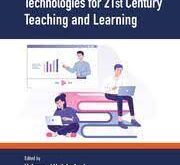In the realm of education, the synergy between research and practice is crucial for fostering innovation, improving teaching methodologies, and enhancing student outcomes. Educational research serves as the foundation for evidence-based practices, offering insights that can transform classrooms and school systems. However, the challenge lies in effectively implementing research findings in schools to create meaningful and sustainable improvements in the educational landscape. This article delves into the significance of implementing educational research in schools, explores the barriers to successful implementation, and suggests strategies to bridge the gap between research and practice.
The Role of Educational Research
Educational research is a dynamic and multidisciplinary field that seeks to understand and address various aspects of the learning environment, teaching strategies, and educational policies. It encompasses a wide range of topics, including pedagogy, curriculum design, classroom management, student engagement, and the use of technology in education. The ultimate goal of educational research is to generate knowledge that informs educational practices, contributing to continuous improvement and the advancement of the education system.

Significance of Implementing Research Findings in Schools
1. Evidence-Based Decision Making:
Implementing research findings in schools promotes evidence-based decision-making. Educators can rely on empirical evidence to inform their instructional strategies, curriculum choices, and interventions, ensuring that their decisions are grounded in proven effectiveness.
2. Continuous Improvement:
Successful implementation of educational research fosters a culture of continuous improvement within schools. By embracing research-informed practices, educators and administrators can adapt and refine their approaches, leading to enhanced student learning outcomes and overall school performance.
3. Teacher Professional Development:
Educational research provides a valuable resource for teacher professional development. Implementing research findings in teacher training programs equips educators with the latest insights into effective teaching methods, allowing them to refine their skills and stay abreast of advancements in the field.4. Meeting Diverse Student Needs:
Research-informed practices help schools better address the diverse needs of their students. Whether it’s implementing differentiated instruction, personalized learning approaches, or targeted interventions, educational research provides tools for catering to the unique learning styles and abilities of each student.
Challenges in Implementing Educational Research
Despite the potential benefits, the translation of research findings into effective practices within educational settings faces various challenges.
1. Resistance to Change:
Educational institutions, like any other organizations, may face resistance to change. Implementing research findings often requires educators and administrators to depart from established practices, and overcoming resistance can be a significant hurdle.
2. Limited Resources:
Schools may encounter resource constraints that impede the implementation of research-informed practices. Limited budgets, insufficient time, and a lack of access to professional development opportunities can hinder the adoption of new and evidence-based strategies.
3. Misalignment with Policies:
Educational policies at the district, state, or national levels can sometimes be misaligned with research findings. This discrepancy may create a barrier to implementing practices supported by research, as educators may feel constrained by policy requirements.
4. Communication Gaps:
Effective communication is paramount in translating research findings into practice. Miscommunication or a lack of clear dissemination strategies can result in educators being unaware of relevant research or struggling to understand how to integrate it into their teaching methods.
Strategies for Successful Implementation
To bridge the gap between educational research and practice, educators, administrators, and policymakers can employ several strategies.
1. Professional Development Initiatives:
Investing in ongoing professional development that emphasizes research-based practices is essential. Workshops, seminars, and collaborative learning opportunities can empower educators with the knowledge and skills needed to implement research findings effectively.
2. Collaborative Learning Communities:
Creating collaborative learning communities within schools fosters a culture of shared knowledge and mutual support. Educators can engage in collaborative discussions, share experiences, and collectively implement research-informed practices, creating a supportive environment for change.
3. Policy Alignment:
Efforts should be made to align educational policies with current research findings. This requires collaboration between researchers, educators, and policymakers to ensure that policies support evidence-based practices rather than hindering their implementation.
4. Clear Communication Channels:
Establishing clear communication channels is essential for disseminating research findings to educators. This includes using accessible language, providing practical examples, and leveraging various communication mediums to reach a broad audience.
5. Pilot Programs and Implementation Teams:
Before widespread implementation, pilot programs and implementation teams can test the feasibility and effectiveness of research-informed practices. This approach allows for adjustments based on real-world feedback and facilitates a smoother transition to full-scale implementation.
6. Incentives and Recognition:
Recognizing and incentivizing the adoption of research-informed practices can motivate educators and administrators. Whether through awards, recognition programs, or professional development opportunities, acknowledging efforts to implement research findings encourages a commitment to evidence-based practices.
Case Studies in Successful Implementation
1. Project-Based Learning (PBL):
Numerous schools have successfully implemented project-based learning, an approach supported by research for its ability to enhance student engagement and critical thinking. Schools that have embraced PBL often report increased student motivation, improved collaboration, and better retention of knowledge.
2. Flipped Classroom Model:
The flipped classroom model, supported by research on active learning, has gained popularity in schools. Educators who have implemented this approach often find that students are more engaged in class discussions and activities, as they have already been exposed to instructional content outside of traditional class hours.
3. Social-Emotional Learning (SEL) Programs:
Research on social-emotional learning has led to the successful implementation of SEL programs in schools. These programs aim to develop students’ emotional intelligence, resilience, and interpersonal skills, contributing to a positive and supportive school climate.
Conclusion: A Transformative Approach to Education
The implementation of educational research in schools is a dynamic and ongoing process that requires collaboration, dedication, and a commitment to continuous improvement. By recognizing the challenges and employing strategic approaches, educators and policymakers can bridge the gap between research and practice, creating a transformative educational landscape that prepares students for success in the 21st century. As schools embrace evidence-based practices, they not only contribute to the advancement of education but also ensure that students receive the best possible learning experiences, equipping them with the skills and knowledge needed to thrive in an ever-changing world.
https://www.pinterest.com/suntamilc/
https://groups.google.com/g/pinoy-tambayan-lambingan/c/q1xleA28aEc
https://medium.com/@suntamilcam
https://disqus.com/by/yodesiserialsin/about/
https://www.scribd.com/user/725383021/yodesiserialsin
https://issuu.com/yodesiserialsin
https://www.goodreads.com/user/show/175579593-yodesiserialsin-cam
https://www.wattpad.com/user/yodesiserialsin
https://www.ted.com/profiles/46219631
https://www.behance.net/yodesiserialsin
https://about.me/yodesiserials
https://sites.google.com/view/yodesiserialsin/home
https://www.producthunt.com/@yodesiserialsin
https://www.ultimate-guitar.com/u/suntamilcam
https://www.zazzle.com/mbr/238992942370724610
https://www.blogtalkradio.com/yodesiserialsin
https://audiomack.com/suntamilcam
https://vc.ru/u/2934811-yodesiserials-in/comments
https://pubhtml5.com/homepage/wsxbm/
https://solo.to/yodesiserials
https://gravatar.com/watchasianslol
https://chng.it/CrMC2kMj9f
https://www.coursera.org/user/6c393e0506b5f060dff9ea573ede3ed6
https://www.youtube.com/@Yodesi-sj3lw/featured
https://public.tableau.com/app/profile/yodsi.serials/vizzes
https://www.quora.com/profile/Watchasians-Lol
https://www.kickstarter.com/profile/1395005448/about
https://my.archdaily.com/us/@yodesi
https://www.myminifactory.com/stories/yodesi-65ecb9d37d23f
https://www.pexels.com/@yodesi-serials-1074346591/
https://wakelet.com/@YoDesi46020
https://www.spoonflower.com/profiles/yodesi?sub_action=shop
https://hashnode.com/@yodesiserials
https://dzone.com/users/5106702/yo-desi.html
https://www.webtoolhub.com/profile.aspx?user=42382512
https://www.sutori.com/en/watchasians-lol
https://tapas.io/watchasianslol
https://www.graphis.com/bio/yodesi-serials/
http://www.virtualdj.com/user/user28664308/index.html
https://substack.com/@yodesiserialss
https://www.credly.com/users/yodesi-tv/badges
https://community.hodinkee.com/members/yodesi
https://pxhere.com/en/photographer/4208560
https://qiita.com/yodesi
https://hackaday.io/yodesiserials
https://replit.com/@watchasianslol
https://500px.com/p/yodesi1?view=photos


